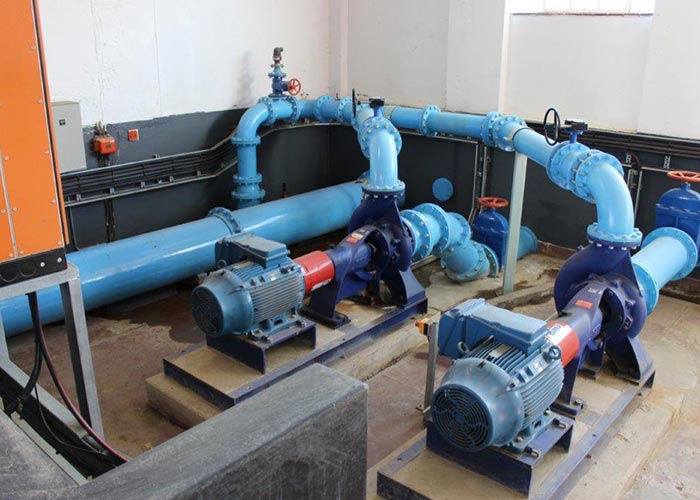By Nkhensani Chauke
The Parliamentary Portfolio Committee on Water and Sanitation has urged municipalities to make payment arrangements to settle their water debt in order to prevent disruptions to the entire water supply chain.
The committee said the municipalities’ water debt bills pose a huge risk to the water value chain, affecting the efficiency and sustainability of water services.
Leon Basson, the chairperson of the water and sanitation committee, said that municipalities’ failure to pay for bulk water services has had a ripple effect on the water value chain.
“The greatest risk to the water value chain is the ability or unwillingness of municipalities to pay for bulk water services, which has a ripple effect on the entire water value chain,” said Basson.
“While we welcome the impressive medium-term plans by water boards, the inability to address the revenue challenge will render those plans futile.”
Basson said, however, that some municipalities like the Mangaung Metropolitan Municipality have responded positively to payment arrangements and have made payment to Vaal Central Water and considerations will be made on debt write-off arising from the commitment to making payments on their current account.
“The scheme of debt writes off on the proviso that municipalities consistently pay their current accounts welcomed and will help improve the cash flow of the water boards,” said Basson.
The committee has acknowledged compliance by the water boards in signing of the shareholder compacts and completion of corporate plans for the medium term, however, highlighted that monitoring and evaluation will be essential to ensure the implementation of the plans.
“The committee is of the view that plans on their own without effective implementation are meaningless and monitoring, especially of risk factors, will ensure implementation and provision of quality services,” said Basson.
The committee has furthermore highlighted the significance of investment on infrastructure development to triumph challenges subjected to by aging infrastructure.
“We are aware that while the biggest challenge with infrastructure is within the municipal system, water boards must also play a crucial role in ensuring incremental improvements in their systems while on the other hand assisting municipalities to implement their capex responsibilities. Infrastructure development is central to economic development and job creation and must be in the heart of operations in the medium term,” he said.
The committee said it was committed to enhancing its oversight over the boards to guarantee that the mandate is effectively delivered since they play a vital role in the water value chain.
“Water boards play a critical role in the water value chain, hence the move by the committee to ensure their long-term sustainability, especially as it relates to the issue of debt owed by municipalities. Also, if the cashflow issues are resolved, the water boards will be in an ideal situation to invest more in infrastructure development that is essential to economic growth and job creation,” said Basson.
In August, the committee said municipalities were ignoring payments for the water services rendered which resulted in water boards facing tremendous cash flow challenges.
The minister of water and sanitation Pemmy Majodina informed the committee of engagements in place with municipalities and provisional governments to resolve the matter.
The committee also highlighted that the achievement of the projected R110 billion in revenue will largely be dependent on improved collaborations with municipalities, as well as the implementation of plans to withhold equitable share for defaulting municipalities.
INSIDE METROS

